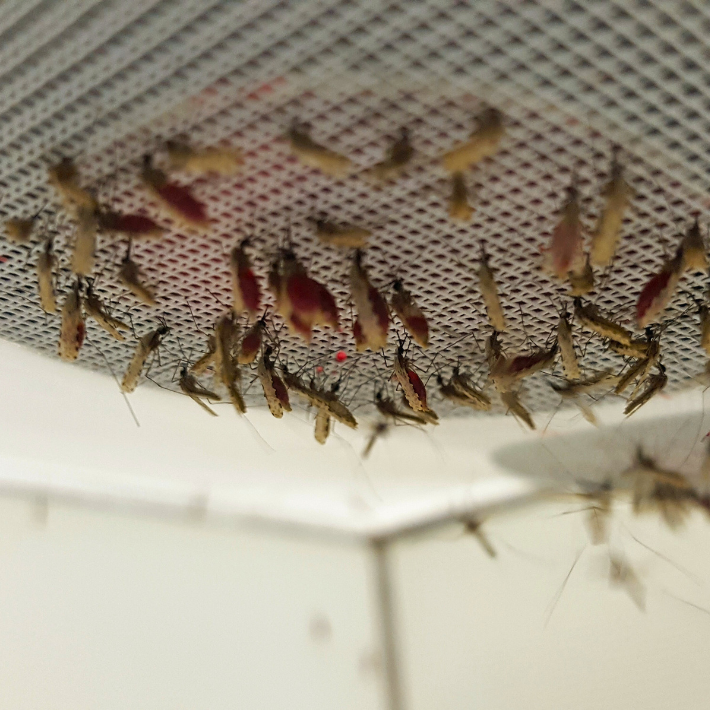Vaccination with genetically attenuated parasites provides better protection against malaria
The mosquitos from the mosquito lab.
&width=710&height=710)
Malaria is a tropical disease caused by the bite of a mosquito infected with a parasite. Each year, nearly 250 million people worldwide contract malaria, making it the most common parasitic disease. More than 600,000 people die annually from malaria, most of whom are children under five years old.
There are already two malaria vaccines available, both of which use a fragment of a protein derived from the malaria parasite. However, these vaccines provide only limited protection against malaria, preventing between one-third and three-quarters of cases. Additionally, their effectiveness diminishes significantly within one to three years. There is therefore an urgent need for a vaccine that offers a higher level of protection. The idea is that broader and longer-lasting protection could be achieved by training the immune system not with just one protein fragment but with the entire parasite.
Crippled parasite
Researchers at Radboudumc and LUMC have successfully tested this theory. To ensure that this vaccination method does not make people sick, the researchers first genetically weakened the parasite.
Meta Roestenberg, professor of Vaccinology at LUMC, explains: "We removed a key gene in the malaria parasite, enabling it to infect humans but not cause illness. These crippled parasites are delivered via mosquito bites and reach the liver as usual. However, due to the disabled gene, the parasite cannot further develop in the liver or enter the bloodstream, which prevents any symptoms of illness. Meanwhile, the crippled parasite triggers a strong immune response in the liver, protecting the person from future real malaria infections. At least, that was the theory."
Effective protection
The researchers tested the crippled parasite (GA2) on healthy volunteers, with the results now published in NEJM. Matthew McCall, clinical microbiologist at Radboudumc, explains: "Volunteers were bitten three times by fifty mosquitoes carrying the crippled GA2 parasite to train their immune systems. They were then infected with a fully virulent parasite. Eight of the nine volunteers developed robust protection and did not contract malaria. By comparison, eight volunteers were vaccinated with an earlier version of the crippled parasite, GA1. After exposure, only one of these eight volunteers developed protection against malaria. In short, the test with our new crippled GA2 parasite performed exceptionally well. We now plan to test vaccinations with similar GA2 parasites in real-life settings."